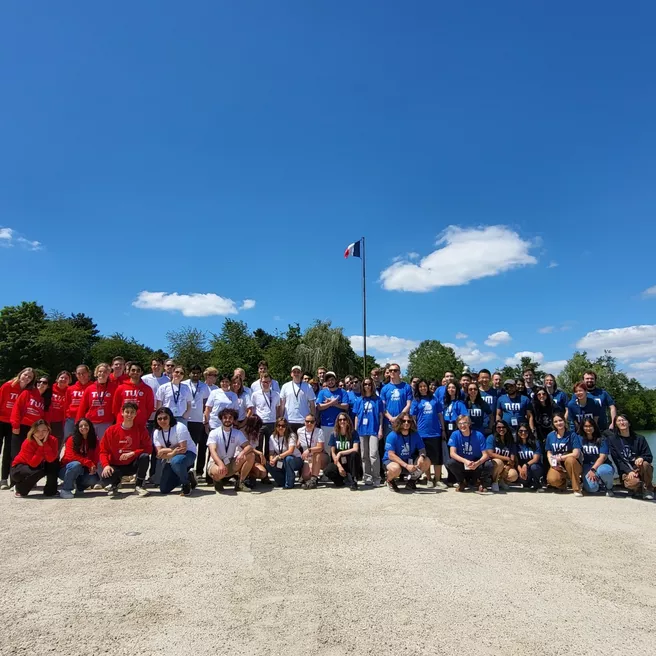Located at TUMJA, the Collider ties into the challenge-based learning focus that TUMJA pilots and refines within the TUM ecosystem. Similar to the projects that TUMJA scholarship holders work on, in the EU-funded Collider, student teams develop solutions to concrete problems under the guidance of experienced professionals.
Given the similarity of the learning approach, the Collider benefits greatly from TUMJA’s rich network of alumni, active professors and the TUM Emeriti of Excellence, as well as young researchers. For instance, ten TUMJA alumni joined the Collider this year as trainers on agile project management, giving the Collider participants valuable insights into the topic.
The Collider expands TUMJA‘s exceptionally vibrant network through the EuroTeQ Alliance Universities, eight leading European technical universities working together to shape the engineering education of the future. The Collider is one of the centerpieces of this international initiative.
During this year’s Collider, more than 60 TUM students tackled real-world problems from business and university environments with the support of experienced professionals and the TUMJA network. Three teams were particularly convincing with their projects and got the chance to attend the EuroTeQaThon in Paris at the beginning of June.
Let’s take a close look at the successful teams.
Team “SME Trace” succeeded in the “Technology” category. Their Digital Product Passport (DPP) aims to make it easier for around 24 million small and medium-sized enterprises (SMEs) in Europe to work more sustainably and with better networking. A lack of digital resources in SMEs is one of the main reasons for problems with digital traceability, resulting in a lack of transparency in supply chains. The Digital Product Passport simplifies access to digital product information, ensuring efficient, compliant documentation. A SaaS app streamlines data input via document scanning and extraction, creating DPPs and QR codes without heavy IT investments. This empowers SMEs, fostering sustainable, transparent value chains.
In the “People” category, the “Circularity Hub” project came out on top. The hub combines an offline marketplace and online services to promote approaches to a circular economy in student halls of residence: Useful items that would often be disposed of at the end of the semester can be given away or sold here. This not only avoids waste but also fosters the local student community. The project will undergo a two-week pilot phase in the Olympic Village, after which the Circularity Hub will help improve sustainability and networks in other halls of residence as well.
Finally, in the third category “Nature”, team “Farm Elf” emerged victorious. Their app provides farmers with a tool that helps them optimize the cultivation and harvesting of their fodder crops. “Farm Elf” uses satellite data and information from drones that use near-infrared spectroscopy to determine the energy content in fields. Combined with weather forecasts, this data is fed into a predictive model that recommends farmers harvest crops at the peak of their energy level. This provides livestock with better feed and reduces their greenhouse gas emissions. The climate impact of livestock farming can thus be reduced.
Winning the local phase of the Collider, the three teams travelled to the EuroTeQathon in Paris where they competed against the teams of the eight EuroTeQ partner universities. “Farm Elf” convinced the distinguished jury and won the category “Nature” on the international level.
The achievements of these remarkable teams show how TUMJA not only nurtures the academic growth of its students but also equips them with the skills to tackle pressing real-world challenges. Thereby, the EuroTeQ Collider instances TUMJA’s commitment to modernizing education within the European Union and beyond.
Our entire team has been able to learn a number of lessons and we are ready for the Collider 2025. Looking forward to exciting new challenges and partnerships in the next round of the EuroTeQ Collider!
